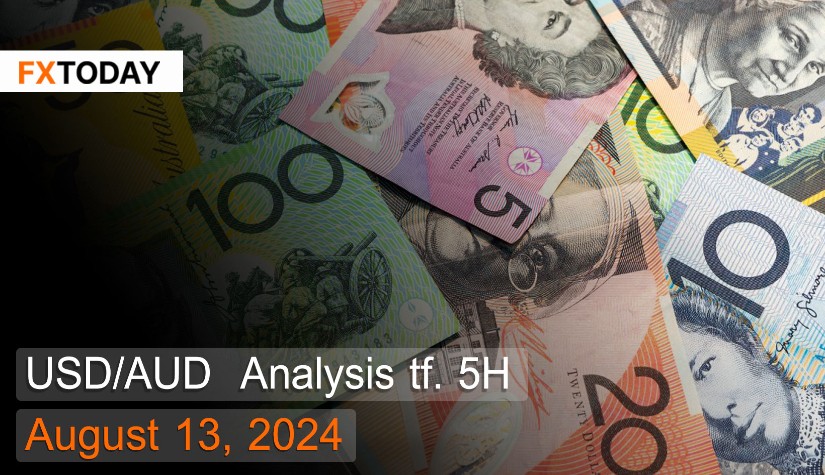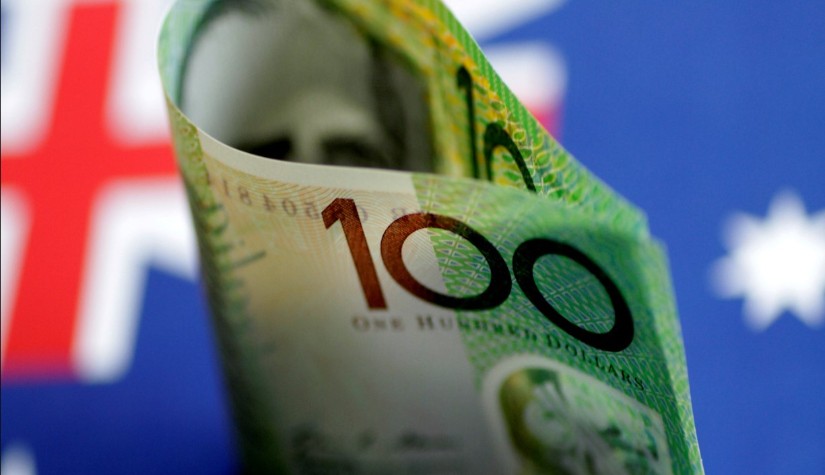Australian companies are facing increasing pressure from contracting demand.
The Australian dollar rapidly appreciates due to increased investment in riskier assets. Additionally, positive domestic economic data have boosted investor and consumer confidence, leading to a swift recovery in Australia, despite high interest rates being a key factor weighing on the domestic economy. However, recent tax reduction policies have provided companies with greater liquidity.
Australia's business confidence index fell to 1 in July, down from 3 in the previous month, marking a sharp decline in business confidence. Moreover, the rising employment costs, in contrast to declining sales, have led to labor and production costs increasing by more than 2.5% on a quarterly basis, following a minimum wage hike earlier this month. Alan Oster, NAB's Chief Economist, mentioned that the increase in employment after a steep decline reflects the current resilience of the labor market.
The Reserve Bank of Australia (RBA) maintained the interest rate at 4.35% during its August meeting, marking the sixth consecutive rate hold. The central bank remains concerned as inflation continues to exceed the target range of 2-3%. The committee also emphasized the need to monitor inflation risks that could rise in the future, and decided to maintain a tight policy until inflation returns to the target range.
Meanwhile, lower-than-expected GDP growth has led the committee to express uncertainty about the future economic outlook. Additionally, rising fatigue in the labor force has exerted significant pressure on many businesses and may lead to salary competition to attract employees, potentially causing inflation to rise again. The RBA added that it will closely monitor global economic conditions, financial markets, domestic demand trends, inflation prospects, and the labor market.
The service sector PMI index dropped to 50.4 in July from 51.2 in June, indicating the sixth consecutive month of expansion in service sector activities, but at a slower and historically lower rate due to a rapid decline in new orders. This is the first decline since January, with reduced customer demand also leading to a slowdown in employment growth. Furthermore, Australian companies are facing increasing cost pressures, resulting in the fastest price increases in a year.
Techical analysis data (5H)
Resistance: 1.5169, 1.5202, 1.522
Source: Investing.com
Buy/Long 1: If the price touches support in the price range of 1.51 - 1.5119 but cannot break the support at 1.5119, you may set a TP at approximately 1.5202 and SL at around 1.5068 or according to your acceptable risk.
Buy/Long 2: If the price breaks the resistance in the price range of 1.5169 - 1.5202, you may set a TP at approximately 1.522 and SL at around 1.51 or according to your acceptable risk.
Sell/Short 1: If the price touches resistance in the price range of 1.5169 - 1.5202 but cannot break the resistance at 1.51, you may set a TP at approximately 1.5169 and SL at around 1.522 or according to your acceptable risk.
Sell/Short 2: If the price breaks the support in the price range of 1.51 - 1.5119, you may set a TP at approximately 1.5068 and SL at around 1.5202 or according to your acceptable risk.
Pivot point August 13, 2024 07:25 PM. GMT+7
|
Name
|
S3
|
S2
|
S1
|
Pivot Points
|
R1
|
R2
|
R3
|
| Classic | 1.5068 | 1.51 | 1.5119 | 1.5151 | 1.5169 | 1.5202 | 1.522 |
| Fibonacci | 1.51 | 1.512 | 1.5132 | 1.5151 | 1.517 | 1.5182 | 1.5202 |
| Camarilla | 1.5123 | 1.5127 | 1.5132 | 1.5151 | 1.5141 | 1.5146 | 1.515 |
| Woodie's | 1.506 | 1.5096 | 1.5111 | 1.5147 | 1.5161 | 1.5198 | 1.5212 |
| DeMark's | - | - | 1.511 | 1.5147 | 1.516 | - | - |
















